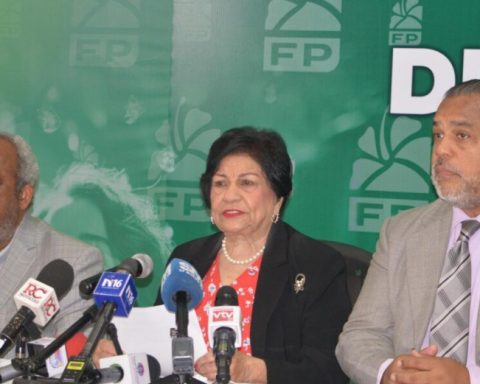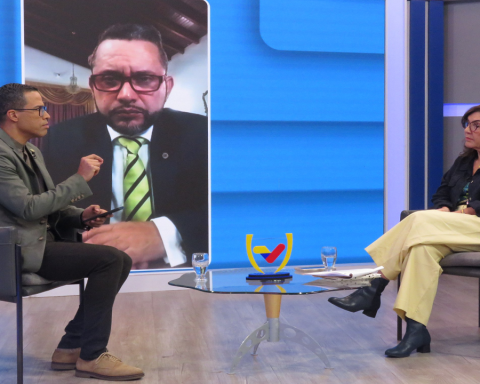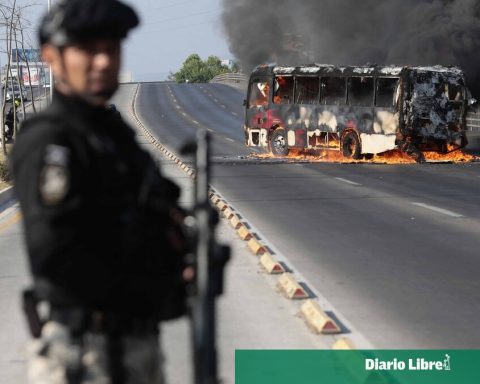In a letter sent this Monday (5) to political parties, human rights organizations propose measures to combat political violence based on gender and race in the 2024 elections. The document is signed by the Marielle Franco Institute, the Black Women Decide movement, the Network of Black Women of Pernambuco, I Vote for Black Women, Global Justice, Terra de Direitos, Observatório de Favelas, the Black Coalition for Rights, the Alziras Institute and the National Network of Anti-Prohibitionist Feminists.
The movements advocate for a greater presence of black and peripheral women who defend human rights in power. “And we need them not to be interrupted! In these 2024 elections, we have the opportunity to ensure that the City Councils and city halls of our cities have more women, black people and people from favelas who defend our rights, so that decision-making spaces have more of a people’s face”, highlights the letter signed by more than 1,500 people.
The document highlights that today’s date – August 5, 2024 – is the deadline for parties to deliberate on the formation of coalitions and the selection of candidates for the positions of mayor, vice-mayor and councilor. “To this day, the number of reported cases of political violence is growing, and black women continue to be underrepresented in institutional politics: according to data from the 2020 elections, they account for only 6.3% in legislative chambers and 5% in city halls,” the letter indicates.
Law No. 14,192/2021, approved on August 4, 2021 and considered the first on political violence, defines that “any action, conduct or omission with the purpose of preventing, obstructing or restricting women’s political rights” represents political violence against women.
The text also highlights that, although the Political Violence Law in Brazil was approved in 2021, providing for the responsibility of political parties to prevent gender and racial political violence and protect women in politics, this does not actually happen. “Most political parties continue to neglect the need to create effective internal protection and security policies for black women candidates and parliamentarians, and fail to comply with the political violence law.”
In the organizations’ understanding, it is not possible to achieve progress in the participation of black women in positions of power without preventing and combating political violence based on gender and race.
The executive director of the Marielle Franco Institute, Lígia Batista, said that sending the letter to the parties is an action that is part of the We Will Not Be Interrupted campaign, promoted by the organization in partnership with other representatives of civil society. “The objective is to demand commitments and parameters from political parties for the implementation of the TSE resolutions [Tribunal Superior Eleitoral] and the Political Violence Law on mechanisms for preventing, protecting and receiving reports of political violence,” he said.
According to the law, political parties must adapt their statutes to the provisions of the new law within 120 days of its publication. “According to the law, the party statute must contain, among other things, rules on the prevention, repression and combating of political violence against women. All political parties were alerted to this deadline by means of an official letter issued by the Attorney General’s Office,” the letter highlights.
The document adds that, after the deadline for adaptation had expired, the Electoral Attorney General’s Office of the Electoral Public Ministry issued, on February 21, 2022, a recommendation to the national directories of political parties to make the necessary changes to the party statutes in accordance with the provisions of the law, “using, for this purpose, the best international guidelines and practices on this topic”.
The implementation of this public policy, to promote greater participation of women in politics, meets the recommendations and guidelines of international organizations and treaties to which Brazil is a signatory, including the Model Protocol for Political Parties: Preventing, Addressing, Sanctioning, and Eradicating Violence against Women in Political Life (Organization of American States, 2019), and also the Inter-American Convention on the Prevention, Punishment, and Eradication of Violence against Women (Convention of Belém do Pará).
For Lígia Batista, the law still needs to be improved, refined and enforced, and in addition to the widespread dissemination of the new rules, monitoring and holding political parties accountable in combating these forms of violence are essential. “The municipal elections are approaching and we need to focus the debate on political violence based on gender and race and what it means for the lives of black women like Marielle, who have had their lives affected by violence,” she noted.
The letter also points to the growth of right-wing extremism in society and in spaces of power both in Brazil and in several other countries. “In this context, social movements, civil society organizations and collectives of black transgender, transvestite and cis women have been leading the resistance to a series of anti-democratic and fundamentalist attacks on our rights to important achievements, the fruits of decades of struggle.”
One of the setbacks identified by the organizations that prepared the letter is the advancement of the Proposed Amendment to the Constitution (PEC) No. 9, approved in two rounds by the Chamber of Deputies on July 11 of this year, called the Amnesty PEC, which pardons political parties that failed to comply with the Quota Law for the distribution of resources from the Electoral Fund and advertising time on radio and TV in the 2022 electoral process.
“This PEC weakens the Electoral Justice, reduces the integrity of the parties, in addition to representing an endorsement for the parties to continue disregarding racism and the extreme gender inequality in the representation of women and black people in politics”, he analyzed.
Among the recommendations, the social organizations and people who signed the letter ask that political parties implement measures such as guaranteeing adequate financial support to pre-candidates and candidates who are victims of political violence, “especially black women, trans women, transvestites and human rights defenders, recognizing the inequality in access to support networks and financial capacity to deal with the impacts of political violence”.
The text also calls for full compliance with the TSE’s recommendations, such as disclosing the receipt of financial resources from the Special Campaign Financing Fund (FEFC) through the political party’s national directory. In addition to FEFC resources, parties must distribute advertising time in order to fully comply with Recommendation No. 1 of the Attorney General’s Office, dated December 14, 2023, regarding the 2024 municipal elections.
The letter emphasizes that parties must adopt measures “to prevent internal reprisals against women who file complaints of harassment or political violence committed by party members. Parties are also responsible for offering legal and political support in cases of political violence.”
















